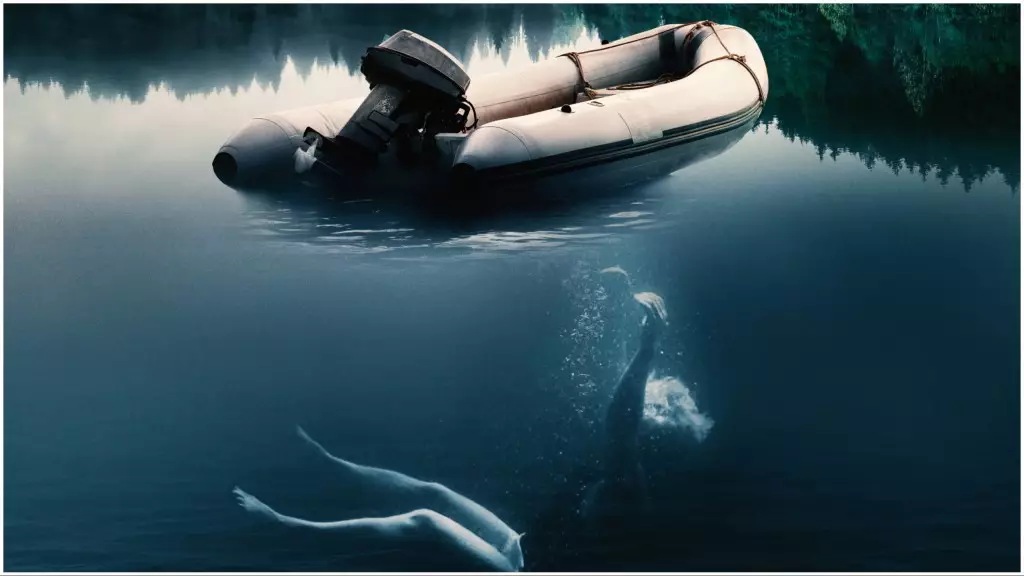The upcoming documentary series ‘In Cold Water’, set to premiere on Prime Video and Sky New Zealand, offers a gripping exploration of an unsettling true crime case. Produced by Canada’s C3 Media in collaboration with New Zealand’s AJP Productions, the series chronicles the mysterious drowning of Laura Letts-Beckett, a schoolteacher whose tragic end raises deep questions about trust, betrayal, and the failures of the justice system.
The case centers around Laura’s husband, Peter Beckett, a former city councilor whose life took an irrevocable turn following her death during a fishing trip in the Canadian Rockies. As the only eyewitness to the incident, Peter’s narrative shapes the foundation of this enigmatic story. The documentary dares to question his truthfulness, plunging viewers into a profound analysis of the human experience in the face of tragedy.
The narrative unfolds through Peter’s recollection of the fateful day, where he describes hearing a splash and realizing that Laura was missing. His self-reported actions—diving into the icy waters, struggling against buoyancy, and ultimately retrieving Laura—paint a scene of desperation and anguish. The emotional gravity of his testimony is palpable; however, its authenticity becomes a focal point of scrutiny.
Retired police officer Jacquie Olsen’s skepticism provides a contrasting perspective, challenging the coherence of Peter’s claims. This intersection of personal testimony and professional inquiry raises vital questions about the reliability of memory, particularly in moments of deep trauma. The layers of Peter’s experience, including his narrative of post-traumatic stress and feelings of helplessness, are juxtaposed against the analytical rigor that Olsen brings to the investigation. This tension mirrors the complexities inherent in many true crime stories, which often leave audiences grappling with blurred lines between guilt and innocence.
Pablo Salzman, the president of C3 Media and executive producer of the series, articulates a compelling vision for what true crime can achieve when it transcends mere sensationalism. His assertion that ‘In Cold Water’ delves into the nuances of human motivations invites viewers to engage deeply with the ethical dilemmas presented in the narrative. This approach aims not just to recount events but to challenge the audience’s perspectives on morality, justice, and truth.
The series not only recounts a murder trial that saw Peter Beckett face a hung jury and subsequent life sentence, but it also encapsulates the emotional tumult that persists well beyond courtroom battles. The aftermath of the legal proceedings, including an appeal that led to the overturning of his conviction, invites commentary on systemic flaws and the human capacity for both compassion and betrayal. The dynamics of Laura’s case serve to underscore broader societal issues, such as the vulnerabilities of individuals within the judicial process and the search for justice that can often feel perilously elusive.
The fascination with true crime stems from an intrinsic human curiosity about the darker aspects of societal existence. The allure lies not only in the stories themselves but in the psychological and emotional landscapes they reveal. ‘In Cold Water’ aspires to grip the audience, leading them to question preconceived notions about the case and the complexities of human relationships that lie beneath the surface.
True crime narratives resonate because they force audiences to confront uncomfortable realities about the human condition, morality, and the often flawed nature of justice. They compel viewers to engage with challenging themes, leading to a rich tapestry of emotional responses—from horror to empathy. As Salzman notes, the growing appetite for immersive storytelling in this genre signifies an evolving landscape in the way we process and understand crime, guilt, and the ramifications of human actions.
With the series set to debut globally on November 12, and subsequently in New Zealand on November 18, viewers are poised to embark on a thought-provoking journey that promises to shed light on one of the most haunting mysteries of our time. As the documentary explores the intricacies of Laura Letts-Beckett’s tragic death, it also invites a broader discourse about the nature of justice, the complexity of human emotion, and the realities of navigating a world often steeped in uncertainty and deception.

